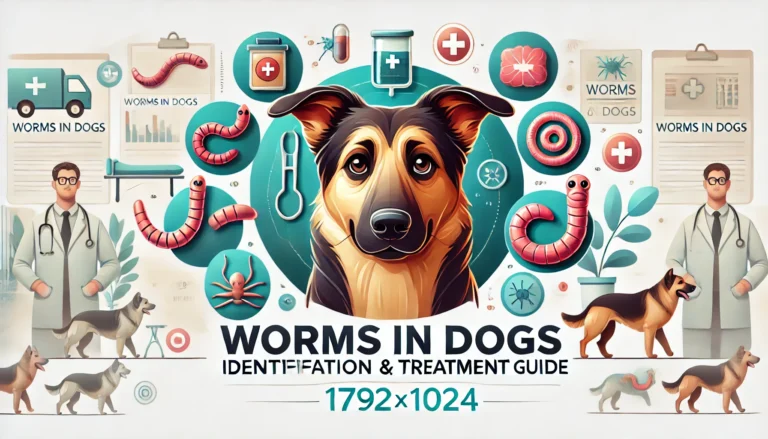Dog Arthritis Treatment: How To Help a Dog With Arthritis

Introduction of Dog Arthritis Treatment
Arthritis in dogs is a widespread condition that can significantly affect their quality of life. Understanding how to manage this disease through effective treatments and care can help alleviate pain and maintain mobility for our canine companions. This comprehensive guide explores the causes, symptoms, and a variety of treatment options available to help manage arthritis in dogs.
Understanding Dog Arthritis Treatment
Arthritis, or osteoarthritis, is a degenerative joint disease that involves the inflammation and deterioration of cartilage and bones in the joints, leading to pain and impaired movement. It primarily affects older dogs but can also occur in younger animals due to joint abnormalities or injuries.
Symptoms of Arthritis in Dogs
- Limping or lameness
- Difficulty climbing stairs or jumping
- Obvious pain during movement
- Stiffness, especially after resting
- Behavioral changes such as irritability or decreased activity
Causes of Canine Arthritis
- Age-Related Wear and Tear: Just like humans, the natural aging process can lead to the degeneration of joint tissue in dogs.
- Genetics: Certain breeds are predisposed to joint issues, including Labrador Retrievers, German Shepherds, and Golden Retrievers.
- Obesity: Excess weight puts additional stress on a dog’s joints, exacerbating the wear and tear.
- Injuries: Accidents or trauma can lead to joint instability and subsequent arthritis.
- Congenital or Developmental Disorders: Conditions like hip dysplasia or elbow dysplasia can lead to earlier onset of arthritis.

Medical Treatments for Dog Arthritis Treatment
Pharmaceuticals
- NSAIDs (Non-Steroidal Anti-Inflammatory Drugs): Drugs such as carprofen, meloxicam, and firocoxib are commonly prescribed to reduce inflammation and pain.
- Supplements: Ingredients like glucosamine, chondroitin, and omega-3 fatty acids are often recommended to support joint health.
- Pain Relievers: Medications such as tramadol may be used for additional pain relief in severe cases.
- Injectable Treatments: Products like Adequan can help inhibit destructive enzymes in joint fluid, improving joint function and reducing inflammation.
Natural Remedies and Supplements
- CBD Oil: Known for its anti-inflammatory properties without the psychoactive effects of THC.
- Herbal Treatments: Ingredients such as turmeric and ginger are known for their natural anti-inflammatory effects.
- Green-Lipped Mussel: Rich in omega-3s and other nutrients that support joint health.
Lifestyle Adjustments and Home Care
Diet and Weight Management
Ensuring your dog maintains a healthy weight is crucial in managing arthritis. Overweight dogs have significantly more stress placed on their joints, worsening arthritic symptoms.
Physical Therapy and Regular Exercise
- Low-Impact Exercise: Activities like swimming or gentle walking help maintain joint mobility and muscle strength.
- Physical Therapy: Professional therapists can provide treatments such as massage and hydrotherapy.
- Daily Routines: Consistent light exercise can be more beneficial than sporadic heavy exercise.
Comfortable Living Environment for Dog Arthritis Treatment
- Orthopedic Beds: Provide better support for arthritic joints and help maintain comfort.
- Heating Pads: Can soothe stiff joints, especially in colder months.
- Accessible Home: Ramps or pet steps can help dogs access their favorite spots without extra strain on their joints.
Alternative Therapies for Dog Arthritis Treatment
Acupuncture
A growing number of veterinary practitioners offer acupuncture as a way to alleviate pain and improve mobility in dogs with arthritis.
Physical Modalities
- Laser Therapy: Helps reduce pain and inflammation while promoting tissue repair.
- Therapeutic Ultrasound: Can improve joint mobility and reduce pain through deep heating.
Monitoring and Regular Veterinary Care
Regular check-ups are essential for monitoring the progression of arthritis and adjusting treatment plans as needed. X-rays and physical exams can help assess the condition of your dog’s joints, and blood tests can monitor the side effects of certain medications.
do you know
Polydactyl cats, also known as “Hemingway cats” or cats with ‘thumbs,’ possess a charming and unique characteristic: extra toes.
Conclusion of Dog Arthritis Treatment
Managing arthritis in dogs is multifaceted, involving a combination of medical treatment, lifestyle adjustments, and possibly alternative therapies. Each dog’s needs may vary, so it’s crucial to work closely with your veterinarian to develop a personalized treatment plan that maximizes your dog’s comfort and mobility. With the right approach, you can help alleviate the symptoms of arthritis and maintain a good quality of life for your furry friend.
Can arthritis be cured?
Arthritis is not curable, but its symptoms can be managed effectively with treatment.
How long can a dog live with arthritis?
With proper management, Dog Arthritis Treatment can lead a comfortable, active life
Are there any side effects of arthritis medications?
Medications like NSAIDs can have side effects, which is why monitoring by a vet is crucial.
Best Treatment for Canine Arthritis?
A combination of NSAIDs, supplements like glucosamine, physical therapy, and lifestyle changes such as weight management are often considered the best approach.
Stage 4 Arthritis in Dogs?
This is the most severe stage, characterized by significant pain, loss of mobility, and extensive joint damage where the bone may rub directly on bone.
Lifespan of Dogs with Arthritis?
Dogs with arthritis can live many years with proper management, though the condition might affect their mobility and overall quality of life.
Pain Relief for Dogs with Arthritis?
Non-Steroidal Anti-Inflammatory Drugs (NSAIDs) are commonly prescribed for pain relief. Always consult a vet for the safest choice.
Is Arthritis Painful for Dogs?
Yes, arthritis can be quite painful for Dog Arthritis Treatment, leading to discomfort and reduced activity levels.
New Treatment for Dog Arthritis?
One of the newer treatments includes stem cell therapy, which can help regenerate damaged tissue and reduce inflammation.






